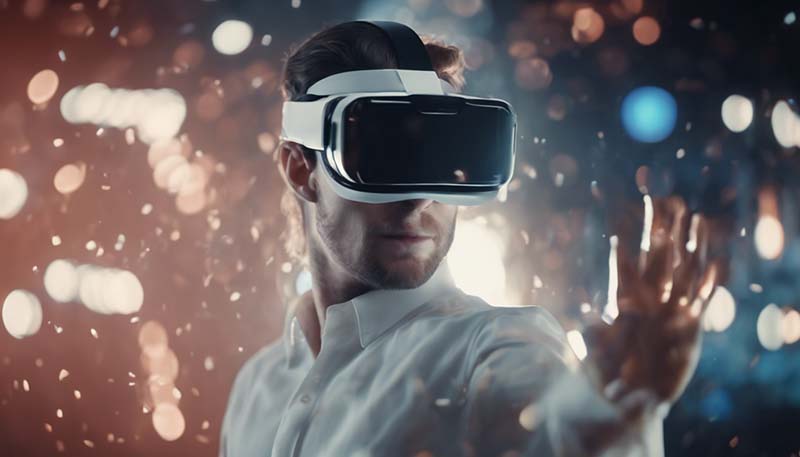Virtual reality (VR) is a rapidly evolving technology that has made significant strides in recent years. Its applications have expanded beyond the realm of gaming and entertainment, infiltrating various industries such as education, healthcare, and biotechnology. In the field of biotechnology, VR holds immense potential to revolutionize the way we understand, interact with, and manipulate biological systems. This article explores the future of VR in biotechnology, discussing its current applications and potential future developments.
**1. Introduction to Virtual Reality**
Virtual reality is a computer-generated simulation that replicates an environment, real or imagined, and simulates a user's physical presence in that environment. Users can interact with the virtual world through sensory stimuli, such as sight, sound, and touch. VR technology has evolved from simple 3D models to immersive experiences that can mimic the complexity of the real world.
**2. Current Applications of VR in Biotechnology**
The integration of VR in biotechnology is still in its nascent stages, but several applications are already making an impact:
- **Educational Training:** VR is used to create realistic simulations for teaching complex biological concepts and procedures, such as cell biology, genetic engineering, and surgical techniques.
- **Drug Design and Testing:** Virtual environments allow researchers to visualize and interact with molecules at the atomic level, aiding in the design and testing of new drugs.
- **Medical Visualization:** Doctors and researchers use VR to better understand the human body, from macroscopic to microscopic levels, enhancing diagnostics and treatment planning.
- **Therapy and Rehabilitation:** VR is being used to treat phobias, anxiety, and for physical rehabilitation, providing controlled environments for patients to practice and improve.
**3. Future Developments in VR for Biotechnology**
Looking ahead, the future of VR in biotechnology is promising with several potential advancements:
- **Immersive Learning Experiences:** VR will offer increasingly realistic and interactive learning experiences, allowing students to perform virtual lab experiments and surgeries.
- **Advanced Cell and Molecular Modeling:** Future VR systems will provide deeper insights into cellular processes and molecular interactions, facilitating breakthroughs in genetic research.
- **Personalized Medicine:** VR could be used to create personalized avatars that represent individual patients' biological conditions, aiding in customized treatment plans.

- **Remote Surgical Training and Assistance:** VR may enable remote surgery and training, allowing experienced surgeons to guide less experienced ones in real-time operations.
**4. Challenges and Considerations**
Despite the potential benefits, there are challenges that need to be addressed:
- **Technical Limitations:** Current VR technology still has limitations in terms of resolution, latency, and interactivity.
- **Cost:** High-quality VR systems can be expensive, which may limit their accessibility in educational and research settings.
- **Ethical Concerns:** The use of VR in biotechnology raises ethical questions regarding privacy, data security, and the potential for misuse.
**5. Conclusion**
The integration of virtual reality in biotechnology is poised to transform the industry, offering new ways to study, understand, and manipulate biological systems. As technology advances and overcomes current limitations, VR is expected to play an increasingly significant role in research, education, and healthcare.
Comment